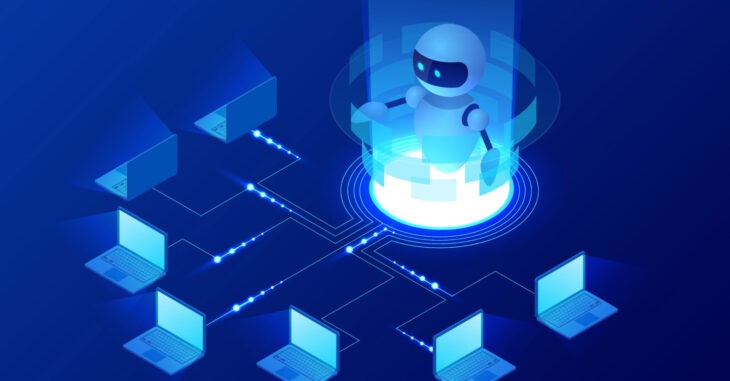The manufacturing industry is undergoing a major transformation, driven by the rise of Industrial Internet of Things (IIoT) and Artificial Intelligence (AI). These technologies are revolutionizing the way manufacturers operate, from the production floor to the supply chain. By integrating IIoT and AI, manufacturers are unlocking unprecedented levels of efficiency, predictive capabilities and real-time decision-making, which are transforming production processes across industries.
What is IIoT and AI in Manufacturing?
- IIoT refers to the integration of smart devices, sensors and networked machines in manufacturing environments. These devices collect, share and analyze data in real-time, providing manufacturers with valuable insights into their operations.
- AI in manufacturing leverages machine learning, predictive analytics and neural networks to process vast amounts of data and make informed decisions. AI enables systems to predict maintenance needs, optimize production lines and even detect anomalies before they occur, improving operational efficiency and reducing downtime.
The combination of IIoT and AI is reshaping the manufacturing sector by enabling automation and smarter decision-making that goes beyond traditional processes.
Key Benefits of IIoT and AI in Manufacturing:
- Enhanced Operational Efficiency
- IIoT devices continuously collect data from machines, sensors and equipment. AI analyzes this data to optimize workflows, improve machine performance and streamline production schedules. This integration leads to significant cost savings and a more efficient manufacturing process.
- Predictive Maintenance
- In traditional manufacturing, maintenance is often reactive, causing unexpected downtime and costly repairs. With IIoT and AI, manufacturers can predict when machines are likely to fail based on real-time data. This shift to predictive maintenance reduces unplanned downtime and extends the lifespan of critical equipment.
- Real-Time Data Analytics
- AI-powered systems can process vast amounts of data from IIoT sensors to provide actionable insights in real-time. Whether it’s adjusting production speeds, monitoring energy consumption or improving product quality, AI-driven analytics allow manufacturers to make data-driven decisions instantly, leading to better performance.
- Improved Product Quality
- By collecting data from each step of the production process, manufacturers can identify inconsistencies and quality issues early. AI can automatically adjust production parameters to ensure consistent product quality, reducing defects and waste.
- Automation and Flexibility
- IIoT and AI allow manufacturers to automate tasks while maintaining flexibility. Automated production lines can adapt to changing conditions, ensuring continuous optimization. This means manufacturers can easily adjust to new demands, improve throughput, and reduce production costs.
- Improved Safety
- AI-powered systems can monitor the working conditions of machinery and personnel, detecting unsafe conditions in real-time. Whether it’s identifying faulty equipment or hazardous working environments, AI helps improve safety standards and prevent accidents.
Applications of IIoT and AI in Manufacturing:
- Smart Factories
- Smart factories are powered by IIoT devices and AI-driven systems, enabling real-time monitoring and control of production processes. These factories use connected devices to gather and analyze data, optimizing performance, reducing waste and increasing flexibility.
- Supply Chain Optimization
- IIoT devices help track inventory, production rates, and delivery schedules in real-time. AI uses this data to predict supply chain disruptions and recommend adjustments, ensuring that raw materials are available when needed and products are delivered on time.
- Energy Management
- Manufacturing processes consume large amounts of energy. IIoT sensors can track energy consumption at different stages of production, while AI algorithms can suggest ways to optimize energy use, reducing costs and promoting sustainability.
- Quality Control and Inspection
- AI enhances quality control by automatically inspecting products during production. Using computer vision and machine learning, AI can identify defects, measure dimensions, and ensure that every product meets quality standards before leaving the production line.
The Future of IIoT and AI in Manufacturing:
As technology continues to evolve, IIoT and AI will continue to drive the future of manufacturing. The integration of 5G networks, edge computing, and advanced AI algorithms will make smart factories even more intelligent, with real-time adaptive systems that can optimize operations and predict future demands. The future of manufacturing will be characterized by fully autonomous production lines, predictive analytics, and data-driven decision-making.
Conclusion:
The integration of IIoT and AI in manufacturing is transforming the industry, enabling smarter, more efficient production processes. By embracing these technologies, manufacturers can improve productivity, reduce costs, enhance safety and maintain a competitive edge in an increasingly digital world. As these technologies continue to evolve, their impact on manufacturing will only grow, shaping the future of industrial automation.
